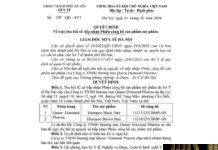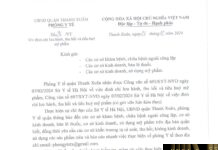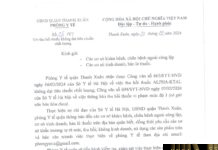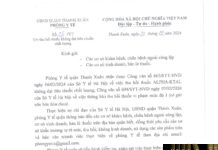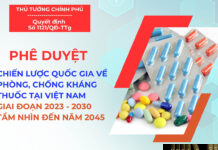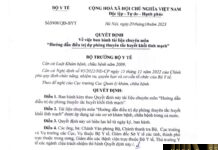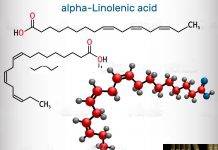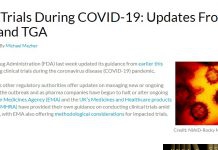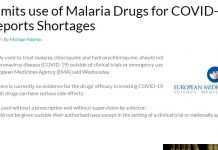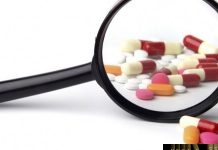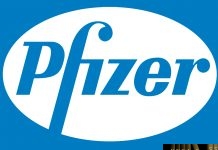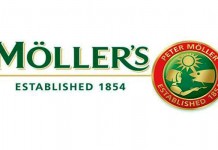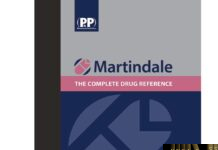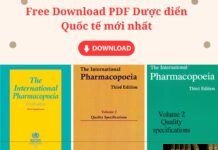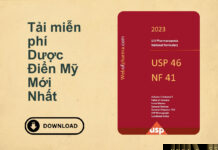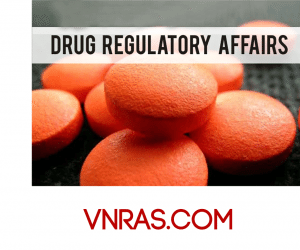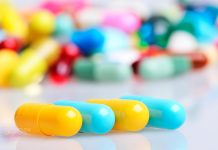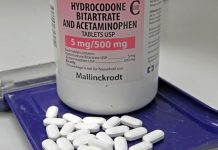MEDICAL DEVICE GUIDANCE – HEALTH SCIENCES AUTHORITY
HEALTH SCIENCES AUTHORITY
REGULATORY GUIDANCE
June 2016
MEDICAL DEVICE GUIDANCE
GN-12-1: Guidance on Grouping of Medical Devices
for Product Registration – General Grouping Criteria
Revision 2
CONTENTS
PREFACE
- INTRODUCTION
1.1. PURPUSE
PREFACE
R1.1 ►This document is intended to provide general guidance. Although we have tried to ensure that the information contained here is accurate, we do not, however, warrant its accuracy or completeness. The Health Sciences Authority (HSA) accepts no liability for any errors or omissions in this document, or for any action/decision taken or not taken as a result of using this document. The information contained in this document should not be a substitute for professional advice from your own professional and healthcare advisors. ◄
R2 ►Update Process for this Guidance Document
This version of GN-12 guidance document applies to all medical device registration applications submitted to HSA. The grouping criteria described in the GN-12-1 and GN-12-2 shall be strictly adhered to in submitting your medical devices for registration.
Any requests to reconsider or review these existing grouping criteria shall be submitted via email to hsa md [email protected] with subject header “Request for review of GN-12 grouping criteria”. The email should include detailed information regarding:
- Device type and description
- Existing grouping options and their limitations (if any)
- Proposed grouping criteria and the rationale
- Technical/scientific information to support the above proposal
Such requests received will be reviewed by HSA periodically and if deemed acceptable, the GN-12-1 and GN-12-2 guidance documents will be updated. Updating of the documents will only be done bi-annually (once in 6 months) depending on the number of requests received in the period. Any new or revised grouping criteria shall be implemented only after these have been published online as revised versions of the GN-12-1 and GN-12-2 guidance documents. ◄
REVISION HISTORY
Guidance Version (Publish Date) Revision
GN-12: Revision 1 (January 2011) R1
R1.1 ^GN-12: Revision 1.1 (May 2014) R1.1
R2 ► GN-12-1: Revision 2 (21 June 2016) R2
*Where applicable, changes and updates made in each document revision are annotated with or within the arrow Symbol “► ”. Deletions may not be shown
INTRODUCTION
R2 ►
- Purpose
This document is meant to provide general guidance in determining whether certain medical devices can be included together and submitted in one product registration application. Grouping of medical devices for product registration facilitates the inclusion of multiple devices in one application.
- Background
Under the Health Products Act (Act), all medical devices to be supplied locally are required to be registered with HSA prior to supply unless an exception from the registration requirement has been provided for in the regulations.
Medical devices range from simple medical devices (e.g. syringe) to highly complex medical devices (e.g. implantable pacemakers) including devices that comprise of myriad components (e.g. patient monitoring systems). These various components or modules can be sold individually, in different combinations as required by the end user, as a convenient all-in-one kit, or as an individually customised pack. Individual medical devices are also typically available in various configurations including length, diameter, etc. There are also certain device specific attributes, such as those specific to in vitro diagnostic devices and hearing aids, which should be considered when categorising devices for the purpose of grouping.
To better cater for the diverse categories of medical devices, grouping criteria that applies generally to medical devices and also device specific grouping categories have been developed and are presented in this GN-12-1 and the GN-12-2 guidance documents, respectively. Applicants should determine and perform the grouping of medical devices to be registered based on GN-12-1 and GN-12-2 guidance documents when preparing their medical device product registration submissions. ◄
- Scope
This document applies to all medical devices.
- Definition
Definitions, which are not set out in the Act and Health Products (Medical Devices) Regulations (Regulations), are intended as guidance in this document. These definitions are not taken verbatim from the above legislation and should not be used in any legal context. These definitions are meant to provide guidance in layman terms.
R2 ►
ACCESSORY: for the purposes of this guidance document, means an article that is intended specifically by its product owner to be used together with a particular medical device to enable or assist that device to be used in accordance with its intended purpose. An accessory is typically intended to be used for one or more of the purposes as described in the definition of medical device and therefore should be considered a medical device.
PROPRIETARY NAME: for the purposes of this guidance document, a unique name given by the product owner to identify a medical device as a whole product, also known as the trade name or brand name.
INTENDED PURPOSE/INTENDED USE (as set out in the Regulations): in relation to a medical device or its process or service, means the objective intended use or purpose, as reflected in the specifications, instructions and information provided by the product owner of the medical device. ◄
MEDICAL DEVICE: means a medical device as described in the First Schedule of the Act.
R2 ►
PRODUCT OWNER (as set out in the Regulations): in relation to a health product, means a person who —
- supplies the health product under his own name, or under any trade mark, design, trade name or other name or mark owned or controlled by him; and
- is responsible for designing, manufacturing, assembling, processing, labelling, packaging, refurbishing or modifying the health product, or for assigning to it a purpose, whether those tasks are performed by him or on his behalf. ◄
- GENERAL PRINCIPLES OF GROUPING
R2 ►
Medical devices that can be grouped into one of the grouping categories specified in this GN-12-1 and also in GN-12-2 guidance documents can be submitted in one product registration application.
Grouping of medical devices is for the purpose of product registration submission. The listing of registered medical devices on the Singapore Medical Device Register (SMDR) upon approval may differ from the initial submitted grouping. For example, medical devices with different proprietary names or brand names may be submitted in one product registration application if they meet any of the grouping categories defined in this GN-12-1 or the GN-12-2 guidance documents. However, the devices with different proprietary names or brand names will be listed separately under different device listings on the SMDR.
The product owner of a medical device may incorporate as part of their device, medical devices and/or accessories from other manufacturers or product owners or intend such devices to be used together to achieve a common intended purpose. By such design and/or intended purpose, the product owner of the medical device also assumes the responsibility for such use of the other devices and accessories.
Existing regulatory requirements apply to all medical devices to be registered, regardless of the manner in which they are grouped for product registration submission. Information on all medical devices within a grouping must be submitted as part of the dossier/application for registration, such as authorisation from all medical device product owners for registration and data to substantiate the performance of these devices.
Once the medical device(s) is deemed registrable, the final appropriate device listing information on the SMDR shall be determined by HSA. For example, where submissions with device groupings which allow for instruments/accessories from different product owners, such as IVD analysers, only the product owner of the primary device will be listed on the SMDR, although the documentation relating to other product owners are required to be submitted as part of the registration submission. Only registered medical devices listed on the SMDR shall be supplied on the market.
The Registrant shall undertake the following post-market duties and obligations for all medical devices and accessories they have registered on the SMDR either individually or as part of grouped registrations:
- comply with the conditions applicable to the registered medical device and conditions imposed on the Registrant;
- submit applications to the Authority for changes made to the registered medical device;
- maintain records of supply;
- maintain records of complaints;
- report defects and adverse effects to the Authority; and
- notify the Authority concerning field safety corrective action (FSCA), including recall. ◄
- GROUPING CATEGORIES 3.1. FAMILY
A medical device FAMILY is a collection of medical devices and each medical device FAMILY member:
- is from the same product owner;
- is of the same risk classification;
- has a common intended purpose;
- has R2 ► a common ◄ design and manufacturing process; and
- has variations that are within the scope of the permissible variants.
LIST OF PERMISSIBLE VARIANTS IN A FAMILY
The list of permissible variants is a closed list.
| Specific products | Permissible variants |
| R2 ► Abutments | Retention (e.g. cement or screw) |
| R2 ► Active Implantable Devices | MR conditional and Non- MR Conditional |
| Antibiotic test (IVD) | Concentration |
| R2 ► Biopsy Forceps | Formable or Non-formable |
| R2 ► Blood Bags | (i) Anticoagulants with same composition but different concentrations
(ii) Additives (different composition and concentrations) |
| R2 ► Catheter | (i) Number of lumens in catheter
(ii) Material of catheter: PVC (polyvinylchloride), PU (polyurethane), nylon and silicone (iii) Curvature (iv) Coating material for lubrication |
| Condoms | (i) Texture
(ii) Flavour |
| R2 ► Contact lens | (i) Diopter,
(ii) UV protection (iii) Tinting (iv) Colour (v) Wearing schedule (i.e. daily wear, extended wear) (vi) Replacement schedule (i.e. daily, weekly, monthly) |
| R2 ► Defibrillators | Automatic or semi-automatic |
| Dental brackets | Material of bracket |
| Dental handpieces | (i) Rotational speed
(ii) Material of handpiece |
| Specific products | Permissible variants |
| R2 ► Dermal fillers | Same composition but different concentrations/densities |
| R2 ► Diagnostic Radiographic Systems | (i) Number of slices
(ii) Digital vs Analog (iii) Biplane and Single Plane (iv) Flat Panel vs Cassette (v) PET ring size |
| Electrophysiological
Catheter |
(i) Electrode spacing
(ii) Number of electrodes |
| R2 ► Gloves | Powdered or powder-free |
| R2 ► Gamma Camera | Number of detectors |
| R2 ► Guide wire | With or without inert coating material |
| R2 ► Orthopaedic/ Dental Implants | (i) Cemented or non-cemented fixation
(ii) Collar |
| R2 ► Intra-ocular Lens | (i) Monofocal or Multifocal
(ii) Multi-piece or Single-piece (iii) Aspheric or Spheric |
| R2 ► Implantable Pulse Generators | Number of Chambers (Cardio) |
| IV Cannula | (i) Presence of injection port
(ii) Presence of safety wing |
| IVD rapid tests | Different assembly format: cassette, midstream, strip |
| IVD urinalysis strips | Different combination of testing configurations |
| R2 ► Polymer products | With or without plasticisers (e.g. DEHP) |
| Specific products | Permissible variants |
| R2 ► Stent | (i) Delivery system, that is over-the-wire or through the’ scope
(ii) Flaps, Flares or sleeves |
| R2 ► Suture | (i) Number of strands
(ii) Pledgets (iii) Loops (iv) Dyes |
| Suture passer | Design of jaw, handle or needle |
| R2 ► Tracheal Tube | With or without cuff |
| (endotracheal tube, tracheostomy tube) | |
| R2 ►Wound Dressings | Different formats (e.g. solution, creams, gels loaded onto pads, etc) |
| R2 ► X-ray detector | Scintillator material |
|
||||||||||||||
|
||||||||||||||
|
||||||||||||||
|
||||||||||||||
|
||||||||||||||
|
||||||||||||||
|
||||||||||||||
|
||||||||||||||
|
||||||||||||||
|
R2 ► When medical devices satisfy the FAMILY conditions to be grouped as one product registration submission, but have different device proprietary names or brand names, the device models will be listed separately on the SMDR based on their proprietary names upon approval of the application.
Addition of New Models to a FAMILY Listing on the SMDR
The addition of new medical devices to an SMDR device listing through a CHANGE NOTIFICATION is only permissible if the new medical devices being added carry the same device proprietary name or brand name as the SMDR-listed medical devices. Although, the new medical devices may satisfy the criteria to be grouped as a FAMILY with the registered medical devices, a new product registration application has to be submitted for the registration of these new medical devices that have different proprietary names from those registered on the SMDR. Kindly refer to GN-21 Guidance on Change Notification for Registered Medical Devices for more information. ◄
Examples:
R2 ►
- Condoms that differ in colour, size and texture but are manufactured from the same material, using common manufacturing process and share a common intended purpose can be grouped as a FAMILY.
- IV administrative sets that differ in features such as safety wings and length of tubing, but are manufactured from the same material, common manufacturing process and share a common intended purpose can be grouped as a FAMILY.
- Steerable guidewires that are available in various lengths and possess various tip shapes and tip flexibilities can be grouped as a FAMILY if their variations fall within the scope of permissible variants.
- Cardiac catheters that are available in a different number of lumens, lengths and diameters can be grouped as a FAMILY.
- Contact lenses with additional features of UV protection can be grouped as a FAMILY, as this feature does not affect the basic design and manufacturing of the lens. ◄
- Contact lenses are available as toric lens or spherical lens. These products have different intended purposes and performances. They are designed and manufactured differently. Due to these differences, they shall not be considered as members of a FAMILY.
- SYSTEM
R2 ► A medical device SYSTEM comprises of a number of medical devices and/or accessories that are:
- from the same product owner;
- intended to be used in combination to achieve a common intended purpose;
- compatible when used as a SYSTEM; and
- sold under a single SYSTEM name or the labelling, IFU, brochures or catalogues for each constituent component indicates that the constituent component is intended to be used together or for use with the SYSTEM.
Devices registered as part of a SYSTEM shall only be supplied specifically for use with that SYSTEM. Any device that is meant for supply for use with multiple SYSTEMs should be registered together with each of these other SYSTEMs. Alternatively, if these devices are compatible for use with one or multiple SYSTEMs from different product owners, they can be registered separately. ◄
|
R2 ► A product owner of a medical device SYSTEM may incorporate medical devices and/or accessories from other product owners (or manufacturers) as part of their SYSTEM to achieve the intended purpose of the device. These medical devices and/or accessories should be grouped together as a SYSTEM, and information on all these devices and accessories, such as authorisation from their product owners for registration with the SYSTEM, evidence on use and compatibility with the SYSTEM shall be submitted.
Example:
A patient monitoring SYSTEM from product owner A is intended to be used specifically with vital signs sensors and probes from product owner B. These accessories are used in combination to achieve a common intended purpose in accordance with product owner A’s specifications, and can be grouped together with the patient monitoring SYSTEM in one application for registration. ◄
In addition, if multiple SYSTEMs fulfil the following conditions to be grouped as a FAMILY, they may be grouped as a FAMILY (of SYSTEMs):
- the SYSTEMs are from the same product owner;
- the SYSTEMs are of the same risk classification;
- the SYSTEMs have a common intended purpose;
- the SYSTEMs have R2 ► a common ◄design and manufacturing process; and
- key constituent components of the SYSTEMs have variations that are within the scope of the permissible variants.
Individual SYSTEM names may contain additional descriptive phrases.
Examples:
- R2 ► A hip replacement SYSTEM comprising of femoral and acetabular components can be grouped as a SYSTEM. The components must be used in combination to achieve a common intended purpose of total hip replacement. The size of the components may vary.
- An electrosurgical unit and its accessories that consist of forceps, electrodes, electrode holders, leads, plug adaptor, when used together for a common intended purpose, can be grouped as a SYSTEM.
- A catheter placement set/kit comprising of scalpels, syringes, needles, surgical gloves, gauze, drapes and flushing solution that is validated for compatibility and assembled by a single product owner under a single SYSTEM name for use in combination during a surgical catheter placement procedure can be grouped as a SYSTEM.
- Automated blood pressure monitors with optional features such as memory storage and print capability for various models can be considered as part of a FAMILY of SYSTEMS. ◄
- IVD TEST KIT
An IVD TEST KIT is an in vitro diagnostic (IVD) device that consists of
reagents or articles that are:
- from the same product owner;
- intended to be used in combination to complete a specific intended purpose;
- sold under a single TEST KIT name or the labeling, instructions for use (IFU), brochures or catalogues for each reagents or article states that the component is intended for use with the IVD TEST KIT; and
- compatible when used as a TEST KIT.
An IVD TEST KIT does not include the instruments, such as analysers, needed to perform the test.
An IVD Medical Device SYSTEM may typically consist of TEST KITs and
instruments (e.g. an analyser designed to be used with that TEST KIT).
Example:
- A glucose monitoring SYSTEM comprising of a glucose meter, test strips, control solutions and linearity solutions can be grouped as a SYSTEM.
|
Individual reagents or articles can be supplied separately as replacement items for the kit. If the reagents or articles in a TEST KIT are supplied for use in more than one TEST KIT, such reagents or articles shall be included in the product registration application of each of the other TEST KITS.
R2 ► Reagents or articles from another product owner may be grouped with the IVD TEST KIT if the applicant furnishes all information on these reagents or articles required for registration, such as authorisation from the other product owners for registration and data to substantiate the performance of these reagents when used in the test kit. ◄
Example:
- A Human Immunodeficiency Virus (HIV) Enzyme Linked ImmunoSorbent Assay (ELISA) TEST KIT may contain controls, calibrators and washing buffers. All the reagents and articles are used together to detect HIV and therefore can be grouped as a TEST KIT. These reagents and articles can be supplied separately as replacement items for that particular TEST KIT.
- IVD CLUSTER
An IVD CLUSTER comprises of a number of in vitro diagnostic reagents or articles that are:
- from the same product owner;
- R2 ► is of the same risk classification (either Class A only or Class B only); ◄
- of a common test methodology as listed below; and
- of the same IVD CLUSTER category as listed below.
The IVD CLUSTER may include analysers that are designed for use with the reagents in the IVD CLUSTER.
R2 ► The listing of the IVD test kits, reagents and their accessories on the SMDR upon approval may differ from the initial grouping. Individual (SINGLE) reagents or articles, test kits, FAMILY of reagents or articles within an IVD CLUSTER shall be listed separately on the SMDR. The different device proprietary names or brand names, and common intended purpose of the products and analytes would be key considerations for the separate listings.
The IVD CLUSTER grouping is only to be used for product registration and would not be applicable as a grouping criterion for the addition of models through a Change Notification. Kindly refer to GN-21 Guidance on Change Notification for Registered Medical Devices for more information. ◄
LIST OF IVD CLUSTER CATEGORIES
This list of IVD CLUSTER categories is only applicable to R2 ► Class A only or Class B only IVD devices. ◄ It should be clearly stated in the label or IFU of each reagent or article that it is intended for use, whether alone or in combination, for the same category:
| S/N | Methodology | CLUSTER Category | Examples of Analytes | |
| (closed list) | (non-exhaustive list) | |||
| 1 | Clinical Chemistry | Enzymes | (i) | Acid Phosphatase |
| (ii) | Alpha-Amylase | |||
| (iii) | Creatine Kinase | |||
| (iv) | Gamma-Glutamyl Transferase | |||
| (v) | Lactate Dehydrogenase | |||
| (vi) | Lipase | |||
| 2 | Substrates | (i) | Albumin | |
| (ii) | Bilirubin | |||
| (iii) | Urea/Blood Urea Nitrogen | |||
| (iv) | Cholesterol | |||
| (v) | Creatinine | |||
| (vi) | Glucose | |||
| 3 | Electrolytes | (i) | Ammonia | |
| Reagents | (ii) | Bicarbonate | ||
| (iii) | Calcium | |||
| (iv) | Chloride | |||
| (v) | Magnesium | |||
| (vi) | Phosphate Inorganic/Phosphorus | |||
| 4 | Electrolyte | (i) | Ammonia Electrodes | |
| Electrodes | (ii) | Carbon Dioxide (Bicarbonate) Electrodes | ||
| (iii) | Calcium Electrodes | |||
| (iv) | Chloride Electrodes | |||
| (v) | Magnesium Electrodes | |||
| (vi) | Potassium Electrodes | |||
| S/N | Methodology | CLUSTER Category | Examples of Analytes | |
| (closed list) | (non-exhaustive list) | |||
| 5 | Substrate | (i) | Creatinine Electrodes | |
| Electrodes/
Biosensors |
(ii) | Glucose Electrodes | ||
| (iii) | Glycated Hemoglobin Electrodes | |||
| (iv) | Lactate Electrodes | |||
| (v) | Urea Electrodes | |||
| (vi) | Bilirubin Electrodes | |||
| 6 | Immunochemistry | Immunoglobulins | (i) | Immunoglobulin A |
| (without IgE). | (ii) | Immunoglobulin D | ||
| (iii) | Immunoglobulin G | |||
| (iv) | Immunoglobulin M | |||
| R2 | ►— | |||
| (v) | Immunofixation kits | |||
| 7 | Complement | (i) | Complement Component C1q | |
| Components | (ii) | Complement Component C1 inactivator | ||
| (iii) | Complement Component C3/C3c | |||
| (iv) | Complement Component for Bb | |||
| (v) | Complement Component C4 | |||
| (vi) | Complement Component C5a | |||
| 8 | Transport Proteins | (i) | Albumin | |
| (ii) | Ceruloplasmin | |||
| (iii) | Haptoglobin | |||
| (iv) | Hemopixin | |||
| (v) | Lactoferrin | |||
| (vi) | Pre-albumin/T ransthyretin | |||
| 9 | Lipoproteins | (i) | Apolipoprotein A I | |
| (ii) | Apolipoprotein A II | |||
| (iii) | Apolipoprotein B | |||
| (iv) | Apolipoprotein E Sub-typing | |||
| (v) | Lipoprotein (a) | |||
| S/N | Methodology | CLUSTER Category (closed list) | Examples of Analytes (non-exhaustive list) |
| 10 | Other Specific Proteins | (i) a1-Acid Glycoprotein
(ii) a1-Antitrypsin (iii) R2^ a1-Microglobulin (iv) Fibronectin (v) Immuno Reactive Trypsin |
|
| 11 | Allergy | (i) Immunoglobulin E – Total
(ii) Immunoglobulin E – Screen (iii) Immunoglobulin E – Specific, monotest/monoresult (iv) R2^ Allergen specific IgA (v) R2^ Allergen specific IgG |
|
| 12 | Cancer markers | R2 ►—
(i) GI-marker CA242 (ii) p53 R2 ► — |
|
| 13 | Thyroid Function Markers | (i) Free Triiodothyronine
(ii) Free Thyroxine (iii) Thyroid Stimulating Hormone (iv) T – Uptake (v) Thyroglobulin (vi) Neonatal Thyroxine |
|
| 14 | Fertility/Pregnancy Hormones/ Proteins | (i) Androstenedione
(ii) Estradiol (iii) Prolactin R2 ►— (iv) Human Placental Lactogen (v) Estriol |
| S/N | Methodology | CLUSTER Category | Examples of Analytes | |
| (closed list) | (non-exhaustive list) | |||
| 15 | Diabetes Assays | (i) | C-Peptide | |
| (Hormones) | (ii) | Glucagon | ||
| (iii) | Insulin | |||
| (iv) | Glycosylated/Glycated
Haemoglobin |
|||
| (v) | Islet Cell Ab | |||
| (vi) | Proinsulin | |||
| 16 | Renal Metabolism | (i) | Aldosterone | |
| Assays | (ii) | Angiotensin I / II | ||
| (iii) | Angiotensin Converting Enzyme | |||
| (iv) | Cortisol | |||
| (v) | Renine | |||
| 17 | Bone and Mineral | (i) | Bone Alkaline Phosphatase | |
| Metabolism Assays | (ii) | Calcitonin | ||
| (iii) | Cross-linked C-Telopeptides | |||
| (iv) | Cross-linkded N-Telopeptides | |||
| (v) | Cyclic Adenosin Monophosphate | |||
| (vi) | Hydroxyproline | |||
| 18 | Endocrine Hormones | (i) | Adrenocorticotropic Hormone | |
| and Peptides | (ii) | Human Growth Hormone | ||
| (iii) | Insulin-like Growth Factor I | |||
| (iv) | Insulin-like Growth Factor Binding Protein 1 | |||
| (v) | Vasointestinal Peptide | |||
| (vi) | Vasopressin | |||
| S/N | Methodology | CLUSTER Category | Examples of Analytes | |
| (closed list) | (non-exhaustive list) | |||
| 19 | Neuroendocrine | (i) | Bombesin | |
| Function Assays | (ii) | 17-Hydroxy-Ketosterone | ||
| (iii) | p-Endorphin | |||
| (iv) | Neurotensin | |||
| (v) | Somatostatin | |||
| (vi) | Substance P | |||
| 20 | Other Individual and | (i) | Gastrin | |
| Specified Hormones | (ii) | Gonadotropin-Releasing
Hormone |
||
| (iii) | R2^ Melatonin | |||
| (iv) | Pepsinogen | |||
| (v) | Adrenalin | |||
| (vi) | Dopamine | |||
| 21 | Anaemia | (i) | Erythropoietin | |
| (ii) | Ferritin | |||
| (iii) | Folate | |||
| (iv) | Iron | |||
| (v) | Iron Binding Capacity | |||
| (vi) | Soluble Transferrin Receptor | |||
| 22 | Vitamins | (i) | Vitamin B1 | |
| (ii) | Vitamin B2 | |||
| (iii) | Vitamin B6 | |||
| (iv) | Vitamin B12 | |||
| (v) | Vitamin D (Cholecalciferol) | |||
| (vi) | Intrinsic Factor (Blocking Antibody) | |||
| S/N | Methodology | CLUSTER Category (closed list) | Examples of Analytes (non-exhaustive list) |
| 23 | R2^ Drug Monitoring | R2 ► —
(i) Caffeine (ii) R2^ Benzodiazepines (iii) R2^ Penicillins (iv) R2^ Tetracyclines |
|
| R2 ►— | R2 ►— | ||
| 24 | Toxicology | (i) Amphetamines
(ii) Cocaine R2 ► — (iii) R2^ Morphine (iv) Phencyclidine (v) Acetaminophen (vi) Catecholamines (vii) Ethanol (viii) Salicylate |
|
| 25 | Auto-immune
Diseases |
(i) Anti-nuclear antibodies (ANAs)
(ii) Anti-topoisomerase (iii) Organ-specific autoantibodies (iv) Circulating Immuno-complex (v) TSH Receptor antibodies (vi) Anti-Cardiolipin antibodies |
|
| 26 | Rheumatoid- Inflammatory Diseases Markers | (i) Anti-Streptococcal Hyaluronidase
(ii) Anti-Streptokinase (iii) Anti-Streptolysin O (iv) C-Reactive Protein (v) Anti-Staphylolysin (vi) Anti-Streptococcal Screening |
| S/N | Methodology | CLUSTER Category (closed list) | Examples of Analytes (non-exhaustive list) |
| 27 | Liver Function | (i) MEGX
(ii) Carbohydrate Deficient Transferrin |
|
| 28 | Cardiac Markers | R2 ►—
(i) Homocysteine (ii) R2^ ST2 (iii) R2^ Galectin-3 (iv) R2^ Myeloperoxidase (MPO) |
|
| 29 | Bacterial Infection – Immunology | (i) Bacillus subtilis R2 ► —
(ii) R2^ Pseudomonas Aeruginosa (iii) R2^ Helicobacter Pylori (iv) R2^ Lactobacillus casei |
|
| 30 | Viral Infection – Immunology | (i) R2^ Norovirus
(ii) R2^ Rotavirus (iii) R2^ Hantavirus |
|
| 31 | Parasitic Infection – Immunology | R2 ► —
(i) Leishmania |
|
| 32 | Fungal Infection – Immunology | (i) Candida albicans
(ii) Aspergillus |
| S/N | Methodology | CLUSTER Category | Examples of Analytes | |
| (closed list) | (non-exhaustive list) | |||
| 33 | Haematology/ | Hemoglobin Testing | (i) | Hemoglobin determinations |
| Histology/ | (Total Hb) | |||
| Cytology | (ii) | Fractional oxyhemoglobin (FO2Hb) | ||
| (Blood tests for | (iii) | Fractional carboxyhemoglobin | ||
| transfusions | (FCOHb) | |||
| excluded) | (iv) | Fractional methemoglobin (FMetHb) | ||
| (v) | Fractional deoxyhemoglobin (FHHb) | |||
| 34 | General Coagulation | (i) | Prothrombin Time | |
| Tests | (ii) | Thrombin Time | ||
| (iii) | Activated Clotting Time | |||
| (iv) | Activated Partial Thromboplastin Time | |||
| 35 | Haemostasis | R2 ► | ||
| (Coagulation) | (i) | Fibrinogen | ||
| (ii) | Protein C and Protein S reagents | |||
| (iii) | C1 -inhibitors | |||
| R2 ► | ||||
| (iv) | Alpha-Antiplasmin | |||
| (v) | Fibrin | |||
| (vi) | Factor XIII | |||
| (vii) | Platelet Factor 4 | |||
| (viii) | Plasminogen | |||
| 36 | Other Hematology | (i) | Complete Blood count | |
| Tests | (ii) | Hematocrit | ||
| (iii) | Erythrocyte Sedimentation rate | |||
| S/N | Methodology | CLUSTER Category | Examples of Analytes | |
| (closed list) | (non-exhaustive list) | |||
| 37 | Cytokines | (i) | Interferons | |
| (Lymphokines)/
Immunomodulators |
(ii) | Soluble Antigens/Receptors | ||
| (iii) | Tumor Necrosis Factors | |||
| R2 ►- | ||||
| (iv) | Colony Stimulating Factors | |||
| (v) | Tumor Necrosis Factors Receptors | |||
| R2 ► | ||||
| 38 | Histology/ Cytology | (i) | Cytochemical Staining | |
| Reagents | (ii) | Embedding, Fixing, Mounting media | ||
| (iii) | Stain solutions | |||
| (iv) | Immunohistology kits | |||
| 39 | Microbiology – | Culture Media | (i) | Dehydrated culture media (DCM) |
| culture | (ii) | Additives for DCM | ||
| (iii) | Prepared Media (Tubes, bottles, Plates) | |||
| (iv) | Cells, Media, Serum for Viral culture | |||
| 40 | Susceptibility Testing | (i) | Erythromycin susceptibility test | |
| Testing for the | for Staphylococcus aureus | |||
| susceptibility of the | (ii) | Tobramycin susceptibility test for | ||
| bacteria to certain | Pseudomonas aeruginosa | |||
| antibiotics. | (iii) | Fungal susceptibility testing | ||
| 41 | Biochemical culture | (i) | Gram Negative Manual ID | |
| Identification (ID) | (ii) | Gram Positive Manual ID | ||
| (iii) | Other ID Kits Manual – Anaerobes, Fastidious | |||
| R2 ► | ||||
| S/N | Methodology | CLUSTER Category (closed list) | Examples of Analytes (non-exhaustive list) |
| 42 | Immunological culture Identification (ID) | (i) Streptococci Grouping Slide tests
(ii) Serotyping (R2 ►— Shigella etc.) |
|
| 43 | Nucleic Acid (NA) based culture identification (ID) | R2 ► —
(i) Streptococci (ii) Shigella |
|
| 44 | Serological identification (ID) | (i) For Parasitology and Mycology (Fungi and Yeast) | |
| R2 ►— | R2 ►— | ||
| 45 | Bacterial Infections | R2 ► — | |
| (Detection by NA Reagents) | (i) Streptococci
(ii) Shigella |
||
| 46 | Viral Infections
(Detection by NA Reagents) |
R2 ► —
(i) Para-influenza NA Reagents |
|
| 47 | Fungal Infections | (i) Fungi NA Reagents
(ii) R2 ► Candida albicans (iii) R2 ► Aspergillus |
|
Information on all reagents or articles within R2 ►an IVD CLUSTER must be submitted as part of the product registration application. Devices and articles that are listed as part of a CLUSTER can be supplied separately but solely for the registered intended purpose. ◄
If a reagent or article is intended for multiple usage categories such that it can be grouped in more than one IVD CLUSTER, the Registrant can choose to group the reagent or article as part of any one of the IVD CLUSTERs it qualifies. Information to support all the intended purposes of the reagent or article must be submitted as part of the product registration application.
Based on the example, the 4 IVD products qualify to be submitted as one IVD CLUSTER category (Enzymes) and would be listed as 4 SMDR listings:
- HSA ABC Test Kit for enzyme A[1]
- HSA ABC Test Kit for enzyme B[2]
- HSA ZEN Reagent for enzyme B[3]
- HSA ZEN Reagent for enzyme C[4]
- GROUP
R2 ► A medical device GROUP is a collection of two or more medical devices, that is labelled and supplied in a single packaged unit by a product owner. The medical device GROUP comprises of the following:
- a single proprietary GROUP name;
- labelled and supplied in a single packaged unit by the product owner; and
- a common intended purpose.
For the purposes of grouping for product registration, the collection of medical devices in a GROUP is the closed list of devices included in a product registration submission. This closed list of medical devices in a GROUP (single packaged unit) may differ in the number (quantity) and combination (permutation within the closed list) of products that comprise the GROUP, while maintaining the same proprietary GROUP name and the GROUP’s intended purpose.
Typically, for a medical device GROUP, the product owner intends to supply a collection of customised medical devices for a specific medical purpose within a single packed unit, such as a convenience pack or tray, which is under a single name.
A product owner of the GROUP who assembles a GROUP together also assumes responsibility for the medical device GROUP and its intended purpose. The product owner of a medical device GROUP may incorporate medical devices obtained from other manufacturers/product owners as part of their GROUP to achieve the common intended purpose. In manufacturing and assembling this GROUP of medical devices, the evidence to substantiate the safety, quality and efficacy of the collection of devices shall be provided in the submission. Relevant information for submission may include sterility, shelf life, evidence on use and compatibility as a GROUP, quality management systems, etc. Labelling, particularly the instructions for use (IFU), where applicable, shall clearly describe the common intended purpose of the GROUP.
Only medical devices within a GROUP that are eventually listed on the SMDR shall be supplied on the market as a single packaged unit under the GROUP name. The single packaged unit identifier would also be listed on the SMDR, where the single packaged units bear unique/different product identifiers; these shall be listed on the SMDR as well. Medical devices that are registered within a GROUP must have a SINGLE medical device registration before they are sold separately as individual medical devices for their specific individual intended purpose or as replacements. ◄
If a medical device in a GROUP is supplied for use in another GROUP, such a medical device shall be included in the registration application of that other GROUP.
R2 ► When the GROUP is registered, the product owner is able to customise for supply, in a single packaged unit, from the closed list of devices for particular hospitals or physicians, while maintaining the same GROUP name and intended purpose. Thus, when the medical device GROUP is registered, any other single packaged unit combination (permutation of devices within the closed list) of devices in that GROUP can be supplied on the market for the registered intended purpose of the GROUP. ◄
The GROUP name indicated for the medical device must appear in the product label affixed on the external package of the GROUP. R2 ► The content list of devices within the single packaged unit for supply should also appear on the external package of the GROUP or supplied with the GROUP. ◄ Individual medical devices in the GROUP do not require to be labelled with that GROUP name. Individual medical devices in the GROUP may contain additional descriptive phrases.
Examples:
- A first aid kit consisting of medical devices such as bandages, gauzes, drapes and thermometers, when assembled together as one package for a common medical purpose by a product owner, can be grouped as a GROUP.
- A product owner supplies dressing trays customised with different quantity and type of gauze and sutures to different hospitals. R2 ► When the closed list of medical devices in the GROUP are registered, the product owner is able to customise the trays, from the list of devices, for other hospitals, while maintaining the same GROUP name for the trays and the registered intended purpose. The product label for the trays shall bear the content list of devices within the package for supply. Some of the medical devices in the GROUP may be individually packaged and labelled, while others remain in bulk form and may not be labelled. The product owner shall account for these during the assembling of the GROUP and ensure compliance to existing regulatory requirements including traceability of individual devices packaged into the trays and record keeping. ◄
- A promotional pack or convenience pack, without a GROUP name and without a common medical intended purpose, consisting of different number of medical devices, for example multi-purpose solution, saline solution, and contact lens case, will NOT qualify as a GROUP registration. Individual medical devices shall require registration as SINGLE medical devices.
|
- SINGLE
R2 ► A SINGLE medical device is a medical device from a product owner identified by a medical device proprietary name or brand name with a specific intended purpose. Medical devices that cannot be assigned to a FAMILY, SYSTEM, IVD TEST KIT, IVD CLUSTER, GROUP or any other device specific grouping category defined in the GN-12-2 guidance document must be registered individually.
A SINGLE medical device is sold as a distinct packaged entity and may also be offered in a range of package sizes. ◄
Examples:
- Condoms that are sold in packages of 3, 12 and 144 can be grouped as a SINGLE medical device when submitting for registration.
- R2 ► A company manufactures a standalone software program that can be used with a number of CT scanners produced by other product owners. The standalone software program itself is deemed a medical device, which can be used on different scanners. The software can be grouped as a SINGLE medical device. ◄
HEALTH SCIENCES AUTHORITY
www.hsa.gov.sg
Contact Information:
Medical Device Branch Pre-marketing Division Health Products Regulation Group Health Sciences Authority
11 Biopolis Way, #11 -03 Helios
Singapore 138667
www.hsa.gov.sg
Tel: 6866 3560
Fax: 6478 9028
Email: [email protected]
[1] HSA ABC Test Kit for enzyme A is under one listing in which HSA is the product owner and ABC is the proprietary name.
[2] HSA ABC Test Kit for enzyme B is under one listing in which HSA is the product owner and ABC is the proprietary name.
[3] HSA ZEN Reagent for enzyme B is under one listing in which HSA is the product owner and ZEN is the proprietary name.
[4] hsa ZEN Reagent for enzyme C is under one listing in which HSA is the product owner and ZEN is the proprietary name.
DOWNLOAD THE ORIGINAL DOCUMENT HERE
[sociallocker id=7424]
GN-12-1-Grouping Guidance_June2016
[/sociallocker]
Medical device guidance Health sciences authority
Other international document here
Copy vui lòng ghi nguồn vnras.com
MEDICAL DEVICE GUIDANCE – HEALTH SCIENCES AUTHORITY
HEALTH SCIENCES AUTHORITY
REGULATORY GUIDANCE
June 2016
MEDICAL DEVICE GUIDANCE
GN-12-1: Guidance on Grouping of Medical Devices
for Product Registration – General Grouping Criteria
Revision 2
CONTENTS
PREFACE
- INTRODUCTION
1.1. PURPUSE
PREFACE
R1.1 ►This document is intended to provide general guidance. Although we have tried to ensure that the information contained here is accurate, we do not, however, warrant its accuracy or completeness. The Health Sciences Authority (HSA) accepts no liability for any errors or omissions in this document, or for any action/decision taken or not taken as a result of using this document. The information contained in this document should not be a substitute for professional advice from your own professional and healthcare advisors. ◄
R2 ►Update Process for this Guidance Document
This version of GN-12 guidance document applies to all medical device registration applications submitted to HSA. The grouping criteria described in the GN-12-1 and GN-12-2 shall be strictly adhered to in submitting your medical devices for registration.
Any requests to reconsider or review these existing grouping criteria shall be submitted via email to hsa md [email protected] with subject header “Request for review of GN-12 grouping criteria”. The email should include detailed information regarding:
- Device type and description
- Existing grouping options and their limitations (if any)
- Proposed grouping criteria and the rationale
- Technical/scientific information to support the above proposal
Such requests received will be reviewed by HSA periodically and if deemed acceptable, the GN-12-1 and GN-12-2 guidance documents will be updated. Updating of the documents will only be done bi-annually (once in 6 months) depending on the number of requests received in the period. Any new or revised grouping criteria shall be implemented only after these have been published online as revised versions of the GN-12-1 and GN-12-2 guidance documents. ◄
REVISION HISTORY
Guidance Version (Publish Date) Revision
GN-12: Revision 1 (January 2011) R1
R1.1 ^GN-12: Revision 1.1 (May 2014) R1.1
R2 ► GN-12-1: Revision 2 (21 June 2016) R2
*Where applicable, changes and updates made in each document revision are annotated with or within the arrow Symbol “► ”. Deletions may not be shown
INTRODUCTION
R2 ►
- Purpose
This document is meant to provide general guidance in determining whether certain medical devices can be included together and submitted in one product registration application. Grouping of medical devices for product registration facilitates the inclusion of multiple devices in one application.
- Background
Under the Health Products Act (Act), all medical devices to be supplied locally are required to be registered with HSA prior to supply unless an exception from the registration requirement has been provided for in the regulations.
Medical devices range from simple medical devices (e.g. syringe) to highly complex medical devices (e.g. implantable pacemakers) including devices that comprise of myriad components (e.g. patient monitoring systems). These various components or modules can be sold individually, in different combinations as required by the end user, as a convenient all-in-one kit, or as an individually customised pack. Individual medical devices are also typically available in various configurations including length, diameter, etc. There are also certain device specific attributes, such as those specific to in vitro diagnostic devices and hearing aids, which should be considered when categorising devices for the purpose of grouping.
To better cater for the diverse categories of medical devices, grouping criteria that applies generally to medical devices and also device specific grouping categories have been developed and are presented in this GN-12-1 and the GN-12-2 guidance documents, respectively. Applicants should determine and perform the grouping of medical devices to be registered based on GN-12-1 and GN-12-2 guidance documents when preparing their medical device product registration submissions. ◄
- Scope
This document applies to all medical devices.
- Definition
Definitions, which are not set out in the Act and Health Products (Medical Devices) Regulations (Regulations), are intended as guidance in this document. These definitions are not taken verbatim from the above legislation and should not be used in any legal context. These definitions are meant to provide guidance in layman terms.
R2 ►
ACCESSORY: for the purposes of this guidance document, means an article that is intended specifically by its product owner to be used together with a particular medical device to enable or assist that device to be used in accordance with its intended purpose. An accessory is typically intended to be used for one or more of the purposes as described in the definition of medical device and therefore should be considered a medical device.
PROPRIETARY NAME: for the purposes of this guidance document, a unique name given by the product owner to identify a medical device as a whole product, also known as the trade name or brand name.
INTENDED PURPOSE/INTENDED USE (as set out in the Regulations): in relation to a medical device or its process or service, means the objective intended use or purpose, as reflected in the specifications, instructions and information provided by the product owner of the medical device. ◄
MEDICAL DEVICE: means a medical device as described in the First Schedule of the Act.
R2 ►
PRODUCT OWNER (as set out in the Regulations): in relation to a health product, means a person who —
- supplies the health product under his own name, or under any trade mark, design, trade name or other name or mark owned or controlled by him; and
- is responsible for designing, manufacturing, assembling, processing, labelling, packaging, refurbishing or modifying the health product, or for assigning to it a purpose, whether those tasks are performed by him or on his behalf. ◄
- GENERAL PRINCIPLES OF GROUPING
R2 ►
Medical devices that can be grouped into one of the grouping categories specified in this GN-12-1 and also in GN-12-2 guidance documents can be submitted in one product registration application.
Grouping of medical devices is for the purpose of product registration submission. The listing of registered medical devices on the Singapore Medical Device Register (SMDR) upon approval may differ from the initial submitted grouping. For example, medical devices with different proprietary names or brand names may be submitted in one product registration application if they meet any of the grouping categories defined in this GN-12-1 or the GN-12-2 guidance documents. However, the devices with different proprietary names or brand names will be listed separately under different device listings on the SMDR.
The product owner of a medical device may incorporate as part of their device, medical devices and/or accessories from other manufacturers or product owners or intend such devices to be used together to achieve a common intended purpose. By such design and/or intended purpose, the product owner of the medical device also assumes the responsibility for such use of the other devices and accessories.
Existing regulatory requirements apply to all medical devices to be registered, regardless of the manner in which they are grouped for product registration submission. Information on all medical devices within a grouping must be submitted as part of the dossier/application for registration, such as authorisation from all medical device product owners for registration and data to substantiate the performance of these devices.
Once the medical device(s) is deemed registrable, the final appropriate device listing information on the SMDR shall be determined by HSA. For example, where submissions with device groupings which allow for instruments/accessories from different product owners, such as IVD analysers, only the product owner of the primary device will be listed on the SMDR, although the documentation relating to other product owners are required to be submitted as part of the registration submission. Only registered medical devices listed on the SMDR shall be supplied on the market.
The Registrant shall undertake the following post-market duties and obligations for all medical devices and accessories they have registered on the SMDR either individually or as part of grouped registrations:
- comply with the conditions applicable to the registered medical device and conditions imposed on the Registrant;
- submit applications to the Authority for changes made to the registered medical device;
- maintain records of supply;
- maintain records of complaints;
- report defects and adverse effects to the Authority; and
- notify the Authority concerning field safety corrective action (FSCA), including recall. ◄
- GROUPING CATEGORIES 3.1. FAMILY
A medical device FAMILY is a collection of medical devices and each medical device FAMILY member:
- is from the same product owner;
- is of the same risk classification;
- has a common intended purpose;
- has R2 ► a common ◄ design and manufacturing process; and
- has variations that are within the scope of the permissible variants.
LIST OF PERMISSIBLE VARIANTS IN A FAMILY
The list of permissible variants is a closed list.
| Specific products | Permissible variants |
| R2 ► Abutments | Retention (e.g. cement or screw) |
| R2 ► Active Implantable Devices | MR conditional and Non- MR Conditional |
| Antibiotic test (IVD) | Concentration |
| R2 ► Biopsy Forceps | Formable or Non-formable |
| R2 ► Blood Bags | (i) Anticoagulants with same composition but different concentrations
(ii) Additives (different composition and concentrations) |
| R2 ► Catheter | (i) Number of lumens in catheter
(ii) Material of catheter: PVC (polyvinylchloride), PU (polyurethane), nylon and silicone (iii) Curvature (iv) Coating material for lubrication |
| Condoms | (i) Texture
(ii) Flavour |
| R2 ► Contact lens | (i) Diopter,
(ii) UV protection (iii) Tinting (iv) Colour (v) Wearing schedule (i.e. daily wear, extended wear) (vi) Replacement schedule (i.e. daily, weekly, monthly) |
| R2 ► Defibrillators | Automatic or semi-automatic |
| Dental brackets | Material of bracket |
| Dental handpieces | (i) Rotational speed
(ii) Material of handpiece |
| Specific products | Permissible variants |
| R2 ► Dermal fillers | Same composition but different concentrations/densities |
| R2 ► Diagnostic Radiographic Systems | (i) Number of slices
(ii) Digital vs Analog (iii) Biplane and Single Plane (iv) Flat Panel vs Cassette (v) PET ring size |
| Electrophysiological
Catheter |
(i) Electrode spacing
(ii) Number of electrodes |
| R2 ► Gloves | Powdered or powder-free |
| R2 ► Gamma Camera | Number of detectors |
| R2 ► Guide wire | With or without inert coating material |
| R2 ► Orthopaedic/ Dental Implants | (i) Cemented or non-cemented fixation
(ii) Collar |
| R2 ► Intra-ocular Lens | (i) Monofocal or Multifocal
(ii) Multi-piece or Single-piece (iii) Aspheric or Spheric |
| R2 ► Implantable Pulse Generators | Number of Chambers (Cardio) |
| IV Cannula | (i) Presence of injection port
(ii) Presence of safety wing |
| IVD rapid tests | Different assembly format: cassette, midstream, strip |
| IVD urinalysis strips | Different combination of testing configurations |
| R2 ► Polymer products | With or without plasticisers (e.g. DEHP) |
| Specific products | Permissible variants |
| R2 ► Stent | (i) Delivery system, that is over-the-wire or through the’ scope
(ii) Flaps, Flares or sleeves |
| R2 ► Suture | (i) Number of strands
(ii) Pledgets (iii) Loops (iv) Dyes |
| Suture passer | Design of jaw, handle or needle |
| R2 ► Tracheal Tube | With or without cuff |
| (endotracheal tube, tracheostomy tube) | |
| R2 ►Wound Dressings | Different formats (e.g. solution, creams, gels loaded onto pads, etc) |
| R2 ► X-ray detector | Scintillator material |
|
||||||||||||||
|
||||||||||||||
|
||||||||||||||
|
||||||||||||||
|
||||||||||||||
|
||||||||||||||
|
||||||||||||||
|
||||||||||||||
|
||||||||||||||
|
R2 ► When medical devices satisfy the FAMILY conditions to be grouped as one product registration submission, but have different device proprietary names or brand names, the device models will be listed separately on the SMDR based on their proprietary names upon approval of the application.
Addition of New Models to a FAMILY Listing on the SMDR
The addition of new medical devices to an SMDR device listing through a CHANGE NOTIFICATION is only permissible if the new medical devices being added carry the same device proprietary name or brand name as the SMDR-listed medical devices. Although, the new medical devices may satisfy the criteria to be grouped as a FAMILY with the registered medical devices, a new product registration application has to be submitted for the registration of these new medical devices that have different proprietary names from those registered on the SMDR. Kindly refer to GN-21 Guidance on Change Notification for Registered Medical Devices for more information. ◄
Examples:
R2 ►
- Condoms that differ in colour, size and texture but are manufactured from the same material, using common manufacturing process and share a common intended purpose can be grouped as a FAMILY.
- IV administrative sets that differ in features such as safety wings and length of tubing, but are manufactured from the same material, common manufacturing process and share a common intended purpose can be grouped as a FAMILY.
- Steerable guidewires that are available in various lengths and possess various tip shapes and tip flexibilities can be grouped as a FAMILY if their variations fall within the scope of permissible variants.
- Cardiac catheters that are available in a different number of lumens, lengths and diameters can be grouped as a FAMILY.
- Contact lenses with additional features of UV protection can be grouped as a FAMILY, as this feature does not affect the basic design and manufacturing of the lens. ◄
- Contact lenses are available as toric lens or spherical lens. These products have different intended purposes and performances. They are designed and manufactured differently. Due to these differences, they shall not be considered as members of a FAMILY.
- SYSTEM
R2 ► A medical device SYSTEM comprises of a number of medical devices and/or accessories that are:
- from the same product owner;
- intended to be used in combination to achieve a common intended purpose;
- compatible when used as a SYSTEM; and
- sold under a single SYSTEM name or the labelling, IFU, brochures or catalogues for each constituent component indicates that the constituent component is intended to be used together or for use with the SYSTEM.
Devices registered as part of a SYSTEM shall only be supplied specifically for use with that SYSTEM. Any device that is meant for supply for use with multiple SYSTEMs should be registered together with each of these other SYSTEMs. Alternatively, if these devices are compatible for use with one or multiple SYSTEMs from different product owners, they can be registered separately. ◄
|
R2 ► A product owner of a medical device SYSTEM may incorporate medical devices and/or accessories from other product owners (or manufacturers) as part of their SYSTEM to achieve the intended purpose of the device. These medical devices and/or accessories should be grouped together as a SYSTEM, and information on all these devices and accessories, such as authorisation from their product owners for registration with the SYSTEM, evidence on use and compatibility with the SYSTEM shall be submitted.
Example:
A patient monitoring SYSTEM from product owner A is intended to be used specifically with vital signs sensors and probes from product owner B. These accessories are used in combination to achieve a common intended purpose in accordance with product owner A’s specifications, and can be grouped together with the patient monitoring SYSTEM in one application for registration. ◄
In addition, if multiple SYSTEMs fulfil the following conditions to be grouped as a FAMILY, they may be grouped as a FAMILY (of SYSTEMs):
- the SYSTEMs are from the same product owner;
- the SYSTEMs are of the same risk classification;
- the SYSTEMs have a common intended purpose;
- the SYSTEMs have R2 ► a common ◄design and manufacturing process; and
- key constituent components of the SYSTEMs have variations that are within the scope of the permissible variants.
Individual SYSTEM names may contain additional descriptive phrases.
Examples:
- R2 ► A hip replacement SYSTEM comprising of femoral and acetabular components can be grouped as a SYSTEM. The components must be used in combination to achieve a common intended purpose of total hip replacement. The size of the components may vary.
- An electrosurgical unit and its accessories that consist of forceps, electrodes, electrode holders, leads, plug adaptor, when used together for a common intended purpose, can be grouped as a SYSTEM.
- A catheter placement set/kit comprising of scalpels, syringes, needles, surgical gloves, gauze, drapes and flushing solution that is validated for compatibility and assembled by a single product owner under a single SYSTEM name for use in combination during a surgical catheter placement procedure can be grouped as a SYSTEM.
- Automated blood pressure monitors with optional features such as memory storage and print capability for various models can be considered as part of a FAMILY of SYSTEMS. ◄
- IVD TEST KIT
An IVD TEST KIT is an in vitro diagnostic (IVD) device that consists of
reagents or articles that are:
- from the same product owner;
- intended to be used in combination to complete a specific intended purpose;
- sold under a single TEST KIT name or the labeling, instructions for use (IFU), brochures or catalogues for each reagents or article states that the component is intended for use with the IVD TEST KIT; and
- compatible when used as a TEST KIT.
An IVD TEST KIT does not include the instruments, such as analysers, needed to perform the test.
An IVD Medical Device SYSTEM may typically consist of TEST KITs and
instruments (e.g. an analyser designed to be used with that TEST KIT).
Example:
- A glucose monitoring SYSTEM comprising of a glucose meter, test strips, control solutions and linearity solutions can be grouped as a SYSTEM.
|
Individual reagents or articles can be supplied separately as replacement items for the kit. If the reagents or articles in a TEST KIT are supplied for use in more than one TEST KIT, such reagents or articles shall be included in the product registration application of each of the other TEST KITS.
R2 ► Reagents or articles from another product owner may be grouped with the IVD TEST KIT if the applicant furnishes all information on these reagents or articles required for registration, such as authorisation from the other product owners for registration and data to substantiate the performance of these reagents when used in the test kit. ◄
Example:
- A Human Immunodeficiency Virus (HIV) Enzyme Linked ImmunoSorbent Assay (ELISA) TEST KIT may contain controls, calibrators and washing buffers. All the reagents and articles are used together to detect HIV and therefore can be grouped as a TEST KIT. These reagents and articles can be supplied separately as replacement items for that particular TEST KIT.
- IVD CLUSTER
An IVD CLUSTER comprises of a number of in vitro diagnostic reagents or articles that are:
- from the same product owner;
- R2 ► is of the same risk classification (either Class A only or Class B only); ◄
- of a common test methodology as listed below; and
- of the same IVD CLUSTER category as listed below.
The IVD CLUSTER may include analysers that are designed for use with the reagents in the IVD CLUSTER.
R2 ► The listing of the IVD test kits, reagents and their accessories on the SMDR upon approval may differ from the initial grouping. Individual (SINGLE) reagents or articles, test kits, FAMILY of reagents or articles within an IVD CLUSTER shall be listed separately on the SMDR. The different device proprietary names or brand names, and common intended purpose of the products and analytes would be key considerations for the separate listings.
The IVD CLUSTER grouping is only to be used for product registration and would not be applicable as a grouping criterion for the addition of models through a Change Notification. Kindly refer to GN-21 Guidance on Change Notification for Registered Medical Devices for more information. ◄
LIST OF IVD CLUSTER CATEGORIES
This list of IVD CLUSTER categories is only applicable to R2 ► Class A only or Class B only IVD devices. ◄ It should be clearly stated in the label or IFU of each reagent or article that it is intended for use, whether alone or in combination, for the same category:
| S/N | Methodology | CLUSTER Category | Examples of Analytes | |
| (closed list) | (non-exhaustive list) | |||
| 1 | Clinical Chemistry | Enzymes | (i) | Acid Phosphatase |
| (ii) | Alpha-Amylase | |||
| (iii) | Creatine Kinase | |||
| (iv) | Gamma-Glutamyl Transferase | |||
| (v) | Lactate Dehydrogenase | |||
| (vi) | Lipase | |||
| 2 | Substrates | (i) | Albumin | |
| (ii) | Bilirubin | |||
| (iii) | Urea/Blood Urea Nitrogen | |||
| (iv) | Cholesterol | |||
| (v) | Creatinine | |||
| (vi) | Glucose | |||
| 3 | Electrolytes | (i) | Ammonia | |
| Reagents | (ii) | Bicarbonate | ||
| (iii) | Calcium | |||
| (iv) | Chloride | |||
| (v) | Magnesium | |||
| (vi) | Phosphate Inorganic/Phosphorus | |||
| 4 | Electrolyte | (i) | Ammonia Electrodes | |
| Electrodes | (ii) | Carbon Dioxide (Bicarbonate) Electrodes | ||
| (iii) | Calcium Electrodes | |||
| (iv) | Chloride Electrodes | |||
| (v) | Magnesium Electrodes | |||
| (vi) | Potassium Electrodes | |||
| S/N | Methodology | CLUSTER Category | Examples of Analytes | |
| (closed list) | (non-exhaustive list) | |||
| 5 | Substrate | (i) | Creatinine Electrodes | |
| Electrodes/
Biosensors |
(ii) | Glucose Electrodes | ||
| (iii) | Glycated Hemoglobin Electrodes | |||
| (iv) | Lactate Electrodes | |||
| (v) | Urea Electrodes | |||
| (vi) | Bilirubin Electrodes | |||
| 6 | Immunochemistry | Immunoglobulins | (i) | Immunoglobulin A |
| (without IgE). | (ii) | Immunoglobulin D | ||
| (iii) | Immunoglobulin G | |||
| (iv) | Immunoglobulin M | |||
| R2 | ►— | |||
| (v) | Immunofixation kits | |||
| 7 | Complement | (i) | Complement Component C1q | |
| Components | (ii) | Complement Component C1 inactivator | ||
| (iii) | Complement Component C3/C3c | |||
| (iv) | Complement Component for Bb | |||
| (v) | Complement Component C4 | |||
| (vi) | Complement Component C5a | |||
| 8 | Transport Proteins | (i) | Albumin | |
| (ii) | Ceruloplasmin | |||
| (iii) | Haptoglobin | |||
| (iv) | Hemopixin | |||
| (v) | Lactoferrin | |||
| (vi) | Pre-albumin/T ransthyretin | |||
| 9 | Lipoproteins | (i) | Apolipoprotein A I | |
| (ii) | Apolipoprotein A II | |||
| (iii) | Apolipoprotein B | |||
| (iv) | Apolipoprotein E Sub-typing | |||
| (v) | Lipoprotein (a) | |||
| S/N | Methodology | CLUSTER Category (closed list) | Examples of Analytes (non-exhaustive list) |
| 10 | Other Specific Proteins | (i) a1-Acid Glycoprotein
(ii) a1-Antitrypsin (iii) R2^ a1-Microglobulin (iv) Fibronectin (v) Immuno Reactive Trypsin |
|
| 11 | Allergy | (i) Immunoglobulin E – Total
(ii) Immunoglobulin E – Screen (iii) Immunoglobulin E – Specific, monotest/monoresult (iv) R2^ Allergen specific IgA (v) R2^ Allergen specific IgG |
|
| 12 | Cancer markers | R2 ►—
(i) GI-marker CA242 (ii) p53 R2 ► — |
|
| 13 | Thyroid Function Markers | (i) Free Triiodothyronine
(ii) Free Thyroxine (iii) Thyroid Stimulating Hormone (iv) T – Uptake (v) Thyroglobulin (vi) Neonatal Thyroxine |
|
| 14 | Fertility/Pregnancy Hormones/ Proteins | (i) Androstenedione
(ii) Estradiol (iii) Prolactin R2 ►— (iv) Human Placental Lactogen (v) Estriol |
| S/N | Methodology | CLUSTER Category | Examples of Analytes | |
| (closed list) | (non-exhaustive list) | |||
| 15 | Diabetes Assays | (i) | C-Peptide | |
| (Hormones) | (ii) | Glucagon | ||
| (iii) | Insulin | |||
| (iv) | Glycosylated/Glycated
Haemoglobin |
|||
| (v) | Islet Cell Ab | |||
| (vi) | Proinsulin | |||
| 16 | Renal Metabolism | (i) | Aldosterone | |
| Assays | (ii) | Angiotensin I / II | ||
| (iii) | Angiotensin Converting Enzyme | |||
| (iv) | Cortisol | |||
| (v) | Renine | |||
| 17 | Bone and Mineral | (i) | Bone Alkaline Phosphatase | |
| Metabolism Assays | (ii) | Calcitonin | ||
| (iii) | Cross-linked C-Telopeptides | |||
| (iv) | Cross-linkded N-Telopeptides | |||
| (v) | Cyclic Adenosin Monophosphate | |||
| (vi) | Hydroxyproline | |||
| 18 | Endocrine Hormones | (i) | Adrenocorticotropic Hormone | |
| and Peptides | (ii) | Human Growth Hormone | ||
| (iii) | Insulin-like Growth Factor I | |||
| (iv) | Insulin-like Growth Factor Binding Protein 1 | |||
| (v) | Vasointestinal Peptide | |||
| (vi) | Vasopressin | |||
| S/N | Methodology | CLUSTER Category | Examples of Analytes | |
| (closed list) | (non-exhaustive list) | |||
| 19 | Neuroendocrine | (i) | Bombesin | |
| Function Assays | (ii) | 17-Hydroxy-Ketosterone | ||
| (iii) | p-Endorphin | |||
| (iv) | Neurotensin | |||
| (v) | Somatostatin | |||
| (vi) | Substance P | |||
| 20 | Other Individual and | (i) | Gastrin | |
| Specified Hormones | (ii) | Gonadotropin-Releasing
Hormone |
||
| (iii) | R2^ Melatonin | |||
| (iv) | Pepsinogen | |||
| (v) | Adrenalin | |||
| (vi) | Dopamine | |||
| 21 | Anaemia | (i) | Erythropoietin | |
| (ii) | Ferritin | |||
| (iii) | Folate | |||
| (iv) | Iron | |||
| (v) | Iron Binding Capacity | |||
| (vi) | Soluble Transferrin Receptor | |||
| 22 | Vitamins | (i) | Vitamin B1 | |
| (ii) | Vitamin B2 | |||
| (iii) | Vitamin B6 | |||
| (iv) | Vitamin B12 | |||
| (v) | Vitamin D (Cholecalciferol) | |||
| (vi) | Intrinsic Factor (Blocking Antibody) | |||
| S/N | Methodology | CLUSTER Category (closed list) | Examples of Analytes (non-exhaustive list) |
| 23 | R2^ Drug Monitoring | R2 ► —
(i) Caffeine (ii) R2^ Benzodiazepines (iii) R2^ Penicillins (iv) R2^ Tetracyclines |
|
| R2 ►— | R2 ►— | ||
| 24 | Toxicology | (i) Amphetamines
(ii) Cocaine R2 ► — (iii) R2^ Morphine (iv) Phencyclidine (v) Acetaminophen (vi) Catecholamines (vii) Ethanol (viii) Salicylate |
|
| 25 | Auto-immune
Diseases |
(i) Anti-nuclear antibodies (ANAs)
(ii) Anti-topoisomerase (iii) Organ-specific autoantibodies (iv) Circulating Immuno-complex (v) TSH Receptor antibodies (vi) Anti-Cardiolipin antibodies |
|
| 26 | Rheumatoid- Inflammatory Diseases Markers | (i) Anti-Streptococcal Hyaluronidase
(ii) Anti-Streptokinase (iii) Anti-Streptolysin O (iv) C-Reactive Protein (v) Anti-Staphylolysin (vi) Anti-Streptococcal Screening |
| S/N | Methodology | CLUSTER Category (closed list) | Examples of Analytes (non-exhaustive list) |
| 27 | Liver Function | (i) MEGX
(ii) Carbohydrate Deficient Transferrin |
|
| 28 | Cardiac Markers | R2 ►—
(i) Homocysteine (ii) R2^ ST2 (iii) R2^ Galectin-3 (iv) R2^ Myeloperoxidase (MPO) |
|
| 29 | Bacterial Infection – Immunology | (i) Bacillus subtilis R2 ► —
(ii) R2^ Pseudomonas Aeruginosa (iii) R2^ Helicobacter Pylori (iv) R2^ Lactobacillus casei |
|
| 30 | Viral Infection – Immunology | (i) R2^ Norovirus
(ii) R2^ Rotavirus (iii) R2^ Hantavirus |
|
| 31 | Parasitic Infection – Immunology | R2 ► —
(i) Leishmania |
|
| 32 | Fungal Infection – Immunology | (i) Candida albicans
(ii) Aspergillus |
| S/N | Methodology | CLUSTER Category | Examples of Analytes | |
| (closed list) | (non-exhaustive list) | |||
| 33 | Haematology/ | Hemoglobin Testing | (i) | Hemoglobin determinations |
| Histology/ | (Total Hb) | |||
| Cytology | (ii) | Fractional oxyhemoglobin (FO2Hb) | ||
| (Blood tests for | (iii) | Fractional carboxyhemoglobin | ||
| transfusions | (FCOHb) | |||
| excluded) | (iv) | Fractional methemoglobin (FMetHb) | ||
| (v) | Fractional deoxyhemoglobin (FHHb) | |||
| 34 | General Coagulation | (i) | Prothrombin Time | |
| Tests | (ii) | Thrombin Time | ||
| (iii) | Activated Clotting Time | |||
| (iv) | Activated Partial Thromboplastin Time | |||
| 35 | Haemostasis | R2 ► | ||
| (Coagulation) | (i) | Fibrinogen | ||
| (ii) | Protein C and Protein S reagents | |||
| (iii) | C1 -inhibitors | |||
| R2 ► | ||||
| (iv) | Alpha-Antiplasmin | |||
| (v) | Fibrin | |||
| (vi) | Factor XIII | |||
| (vii) | Platelet Factor 4 | |||
| (viii) | Plasminogen | |||
| 36 | Other Hematology | (i) | Complete Blood count | |
| Tests | (ii) | Hematocrit | ||
| (iii) | Erythrocyte Sedimentation rate | |||
| S/N | Methodology | CLUSTER Category | Examples of Analytes | |
| (closed list) | (non-exhaustive list) | |||
| 37 | Cytokines | (i) | Interferons | |
| (Lymphokines)/
Immunomodulators |
(ii) | Soluble Antigens/Receptors | ||
| (iii) | Tumor Necrosis Factors | |||
| R2 ►- | ||||
| (iv) | Colony Stimulating Factors | |||
| (v) | Tumor Necrosis Factors Receptors | |||
| R2 ► | ||||
| 38 | Histology/ Cytology | (i) | Cytochemical Staining | |
| Reagents | (ii) | Embedding, Fixing, Mounting media | ||
| (iii) | Stain solutions | |||
| (iv) | Immunohistology kits | |||
| 39 | Microbiology – | Culture Media | (i) | Dehydrated culture media (DCM) |
| culture | (ii) | Additives for DCM | ||
| (iii) | Prepared Media (Tubes, bottles, Plates) | |||
| (iv) | Cells, Media, Serum for Viral culture | |||
| 40 | Susceptibility Testing | (i) | Erythromycin susceptibility test | |
| Testing for the | for Staphylococcus aureus | |||
| susceptibility of the | (ii) | Tobramycin susceptibility test for | ||
| bacteria to certain | Pseudomonas aeruginosa | |||
| antibiotics. | (iii) | Fungal susceptibility testing | ||
| 41 | Biochemical culture | (i) | Gram Negative Manual ID | |
| Identification (ID) | (ii) | Gram Positive Manual ID | ||
| (iii) | Other ID Kits Manual – Anaerobes, Fastidious | |||
| R2 ► | ||||
| S/N | Methodology | CLUSTER Category (closed list) | Examples of Analytes (non-exhaustive list) |
| 42 | Immunological culture Identification (ID) | (i) Streptococci Grouping Slide tests
(ii) Serotyping (R2 ►— Shigella etc.) |
|
| 43 | Nucleic Acid (NA) based culture identification (ID) | R2 ► —
(i) Streptococci (ii) Shigella |
|
| 44 | Serological identification (ID) | (i) For Parasitology and Mycology (Fungi and Yeast) | |
| R2 ►— | R2 ►— | ||
| 45 | Bacterial Infections | R2 ► — | |
| (Detection by NA Reagents) | (i) Streptococci
(ii) Shigella |
||
| 46 | Viral Infections
(Detection by NA Reagents) |
R2 ► —
(i) Para-influenza NA Reagents |
|
| 47 | Fungal Infections | (i) Fungi NA Reagents
(ii) R2 ► Candida albicans (iii) R2 ► Aspergillus |
|
Information on all reagents or articles within R2 ►an IVD CLUSTER must be submitted as part of the product registration application. Devices and articles that are listed as part of a CLUSTER can be supplied separately but solely for the registered intended purpose. ◄
If a reagent or article is intended for multiple usage categories such that it can be grouped in more than one IVD CLUSTER, the Registrant can choose to group the reagent or article as part of any one of the IVD CLUSTERs it qualifies. Information to support all the intended purposes of the reagent or article must be submitted as part of the product registration application.
Based on the example, the 4 IVD products qualify to be submitted as one IVD CLUSTER category (Enzymes) and would be listed as 4 SMDR listings:
- HSA ABC Test Kit for enzyme A[1]
- HSA ABC Test Kit for enzyme B[2]
- HSA ZEN Reagent for enzyme B[3]
- HSA ZEN Reagent for enzyme C[4]
- GROUP
R2 ► A medical device GROUP is a collection of two or more medical devices, that is labelled and supplied in a single packaged unit by a product owner. The medical device GROUP comprises of the following:
- a single proprietary GROUP name;
- labelled and supplied in a single packaged unit by the product owner; and
- a common intended purpose.
For the purposes of grouping for product registration, the collection of medical devices in a GROUP is the closed list of devices included in a product registration submission. This closed list of medical devices in a GROUP (single packaged unit) may differ in the number (quantity) and combination (permutation within the closed list) of products that comprise the GROUP, while maintaining the same proprietary GROUP name and the GROUP’s intended purpose.
Typically, for a medical device GROUP, the product owner intends to supply a collection of customised medical devices for a specific medical purpose within a single packed unit, such as a convenience pack or tray, which is under a single name.
A product owner of the GROUP who assembles a GROUP together also assumes responsibility for the medical device GROUP and its intended purpose. The product owner of a medical device GROUP may incorporate medical devices obtained from other manufacturers/product owners as part of their GROUP to achieve the common intended purpose. In manufacturing and assembling this GROUP of medical devices, the evidence to substantiate the safety, quality and efficacy of the collection of devices shall be provided in the submission. Relevant information for submission may include sterility, shelf life, evidence on use and compatibility as a GROUP, quality management systems, etc. Labelling, particularly the instructions for use (IFU), where applicable, shall clearly describe the common intended purpose of the GROUP.
Only medical devices within a GROUP that are eventually listed on the SMDR shall be supplied on the market as a single packaged unit under the GROUP name. The single packaged unit identifier would also be listed on the SMDR, where the single packaged units bear unique/different product identifiers; these shall be listed on the SMDR as well. Medical devices that are registered within a GROUP must have a SINGLE medical device registration before they are sold separately as individual medical devices for their specific individual intended purpose or as replacements. ◄
If a medical device in a GROUP is supplied for use in another GROUP, such a medical device shall be included in the registration application of that other GROUP.
R2 ► When the GROUP is registered, the product owner is able to customise for supply, in a single packaged unit, from the closed list of devices for particular hospitals or physicians, while maintaining the same GROUP name and intended purpose. Thus, when the medical device GROUP is registered, any other single packaged unit combination (permutation of devices within the closed list) of devices in that GROUP can be supplied on the market for the registered intended purpose of the GROUP. ◄
The GROUP name indicated for the medical device must appear in the product label affixed on the external package of the GROUP. R2 ► The content list of devices within the single packaged unit for supply should also appear on the external package of the GROUP or supplied with the GROUP. ◄ Individual medical devices in the GROUP do not require to be labelled with that GROUP name. Individual medical devices in the GROUP may contain additional descriptive phrases.
Examples:
- A first aid kit consisting of medical devices such as bandages, gauzes, drapes and thermometers, when assembled together as one package for a common medical purpose by a product owner, can be grouped as a GROUP.
- A product owner supplies dressing trays customised with different quantity and type of gauze and sutures to different hospitals. R2 ► When the closed list of medical devices in the GROUP are registered, the product owner is able to customise the trays, from the list of devices, for other hospitals, while maintaining the same GROUP name for the trays and the registered intended purpose. The product label for the trays shall bear the content list of devices within the package for supply. Some of the medical devices in the GROUP may be individually packaged and labelled, while others remain in bulk form and may not be labelled. The product owner shall account for these during the assembling of the GROUP and ensure compliance to existing regulatory requirements including traceability of individual devices packaged into the trays and record keeping. ◄
- A promotional pack or convenience pack, without a GROUP name and without a common medical intended purpose, consisting of different number of medical devices, for example multi-purpose solution, saline solution, and contact lens case, will NOT qualify as a GROUP registration. Individual medical devices shall require registration as SINGLE medical devices.
|
- SINGLE
R2 ► A SINGLE medical device is a medical device from a product owner identified by a medical device proprietary name or brand name with a specific intended purpose. Medical devices that cannot be assigned to a FAMILY, SYSTEM, IVD TEST KIT, IVD CLUSTER, GROUP or any other device specific grouping category defined in the GN-12-2 guidance document must be registered individually.
A SINGLE medical device is sold as a distinct packaged entity and may also be offered in a range of package sizes. ◄
Examples:
- Condoms that are sold in packages of 3, 12 and 144 can be grouped as a SINGLE medical device when submitting for registration.
- R2 ► A company manufactures a standalone software program that can be used with a number of CT scanners produced by other product owners. The standalone software program itself is deemed a medical device, which can be used on different scanners. The software can be grouped as a SINGLE medical device. ◄
HEALTH SCIENCES AUTHORITY
www.hsa.gov.sg
Contact Information:
Medical Device Branch Pre-marketing Division Health Products Regulation Group Health Sciences Authority
11 Biopolis Way, #11 -03 Helios
Singapore 138667
www.hsa.gov.sg
Tel: 6866 3560
Fax: 6478 9028
Email: [email protected]
[1] HSA ABC Test Kit for enzyme A is under one listing in which HSA is the product owner and ABC is the proprietary name.
[2] HSA ABC Test Kit for enzyme B is under one listing in which HSA is the product owner and ABC is the proprietary name.
[3] HSA ZEN Reagent for enzyme B is under one listing in which HSA is the product owner and ZEN is the proprietary name.
[4] hsa ZEN Reagent for enzyme C is under one listing in which HSA is the product owner and ZEN is the proprietary name.
DOWNLOAD THE ORIGINAL DOCUMENT HERE
[sociallocker id=7424]
GN-12-1-Grouping Guidance_June2016
[/sociallocker]
Medical device guidance Health sciences authority
Other international document here


